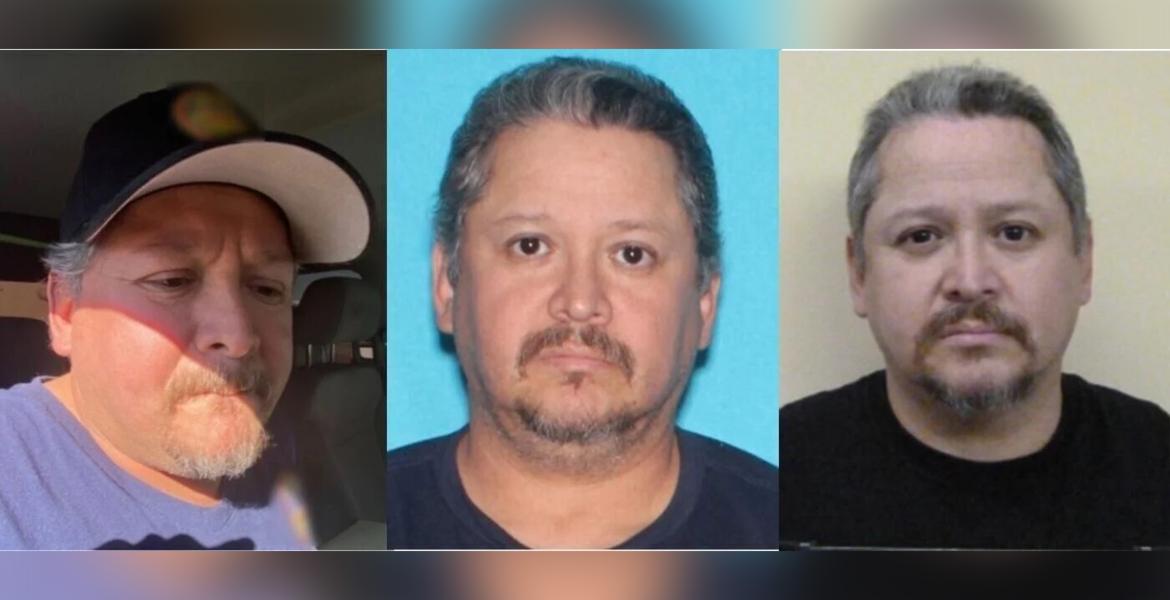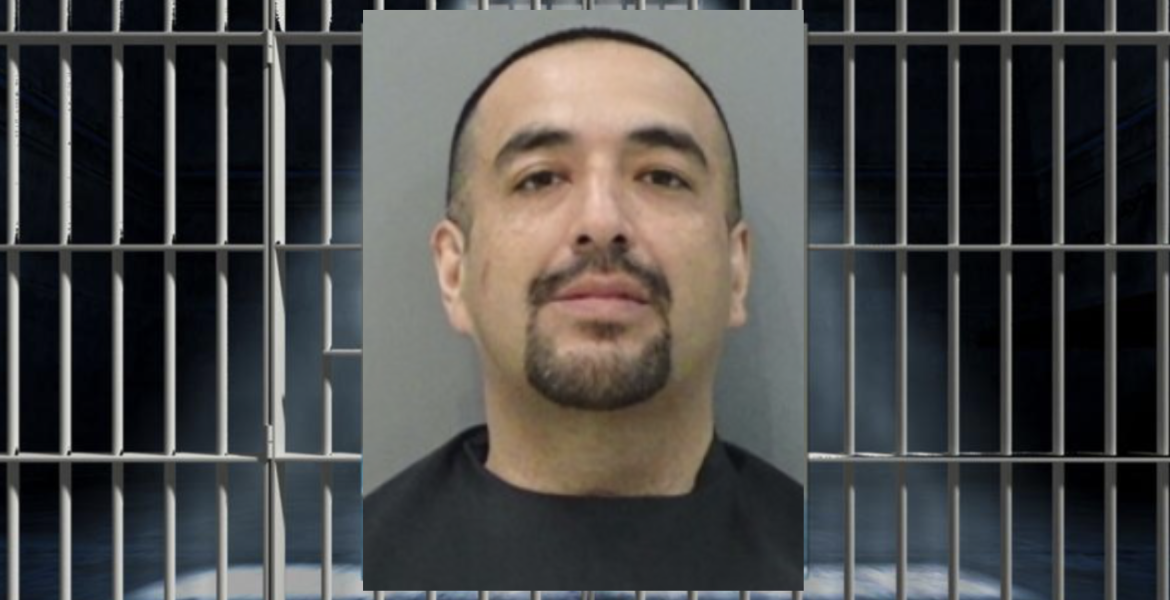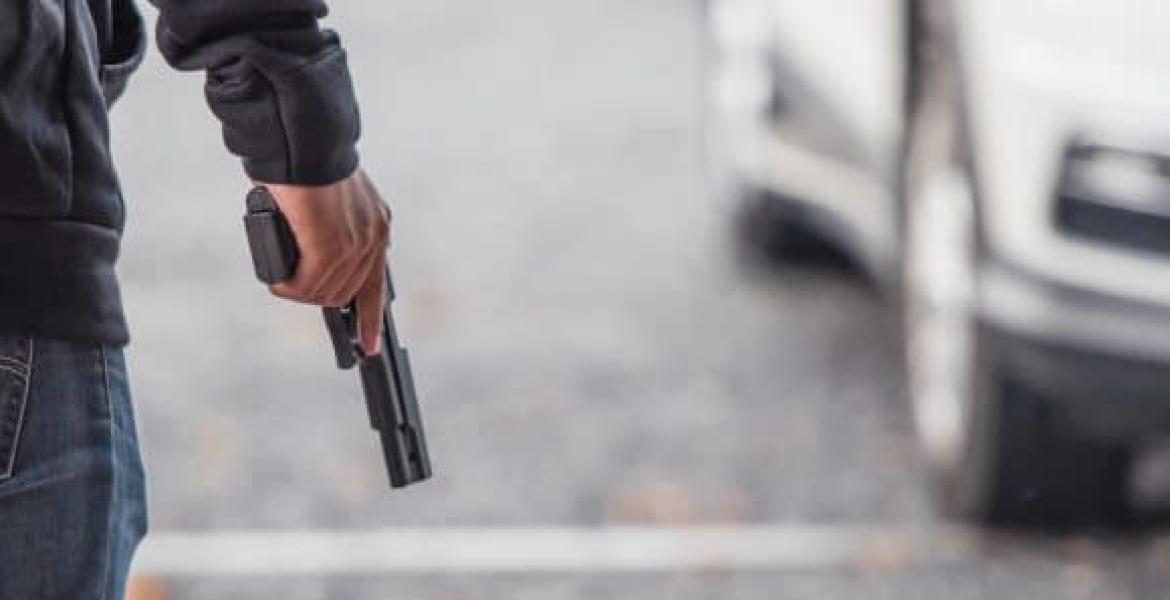SAN ANGELO, TX — One of the three suspects in a downtown shootout during the early morning hours of July 14, 2015 was in court today. His lawyer was asking for the case to be dismissed.
Anthony A. Baca, now 28, is charged with aggravated assault with a deadly weapon. Back in 2015, Baca was one of three of suspects who police said attacked victim Paul Garcia outside Grinner’s Daiquiri Bar near the intersection of S. Chadbourne and W. Twohig just before 1 a.m. According to the complaint, while wielding handguns, Robert Blanco and Marc Anthony Asevedo approached Garcia, who was outside smoking a cigarette, from behind. While “a male subject” held a gun on Garcia’s neck and Asevedo jammed a handgun into Garcia’s stomach, they force-marched him to a waiting car. Garcia was able to wiggle free and took off running east on Twohig. In their pursuit of Garcia, police say Asevedo and Blanco fired at least 16 rounds towards the fleeing victim, who was struck just once in the arm.
Injured, Garcia fled into the parking garage attached to the Cactus Hotel. The complaint states that Baca, who was an accomplice of Asevedo and Blanco, found him. He proceeded to beat Garcia mercilessly in the back of the head with a firearm until an unknown female yelled at Baca that he had shot the wrong guy, the complaint states.
When Garcia arrived at Shannon Medical Center by private vehicle, Asevedo and Blanco had followed him there. The suspects blocked Garcia from entering the emergency room. It was not until Shannon’s armed security guards arrived that Garcia entered the hospital for treatment.
Baca was charged with using a deadly weapon with intent to harm Paul Garcia, a second-degree felony that is enhanced to a first-degree felony for a prior similar conviction in 2008. Baca is currently free on a $75,000 bond. Click here to read the original story.
Baca is on trial separately because he is not charged with firing at Garcia, nor is the State claiming he was among the party who blocked Garcia from the Shannon Emergency Room. Baca is just facing charges for the parking garage beating he allegedly gave Garcia using a firearm.
Baca’s attorney, Jana Johnson, argued Monday in a hearing that the State’s evidence against her client was spoiled. According to the Defense, the San Angelo Police Department’s investigation and the charging of Baca was in part a result of a recording obtained from a jailhouse telephone conversation between Garcia and his girlfriend.
Garcia was locked up the in the Tom Green County Jail on an unrelated charge sometime after the downtown shootout.
In a motion Johnson filed with the court in January, she argues the State did not give the Defense two important pieces of evidence. One was video recording the Defense argues the SAPD investigators had of surveillance video recorded from Grinner’s Daiquiri Bar at 217 S. Chadbourne that was aimed south towards the Chadbourne side of Grinner’s. That tape may show that Baca did not cross Chadbourne in pursuit of the victim, she argued.
Jeremy Cannady, SAPD lead investigator for Baca’s case, referenced the jailhouse telephone call purportedly recorded by the Sheriff’s Office between the victim and his girlfriend in a police report. The statement given by the girlfriend is what led to Baca being charged, Johnson argued.
Johnson said she needed this recorded evidence to support the spoliation of evidence in the case.
A subpoena for Cannady was issued yesterday after Johnson realized the State might not call him as a witness. The detective had not arrived at the start of the hearing.
Judge Walther asked Assistant District Attorney Jason Ferguson to call the police department to see if Cannady could come to testify.
After a short break, Cannady was present to testify. Johnson asked Cannady if he knew why the recordings of the phone calls weren’t preserved, as the statements made were significant to her client’s defense.
Cannady said on the stand that he assumed the Sheriff’s Office would keep recordings of jail phone calls on file so he didn’t extract them from the server. But now, over a year later, the court learned the jail keeps call records for just up to a year, and the evidence was no longer accessible for the hearing.
Johnson pushed further as to why such crucial evidence used to incriminate Baca wouldn’t be issued as official evidence in the case. Cannady believed there was no reason the audio would prove Baca wasn’t involved, as no names were mentioned in the call.
Johnson believed there are inconsistencies with the statements given by the victim and his girlfriend in the jailhouse phone call. She also said that if the recording was included in the trial as evidence, it could impeach the testimony of Garcia.
After the testimony, Judge Walther asked Johnson why she thinks the jail call would provide alternative evidence in the trial.
“I’m still confused,” Walther said.
In the closing arguments for the hearing, Johnson said she believed there was “bad faith” between the police investigators and the 51st DA that infringed on Baca’s Constitutional right of due process. She claimed writing six requests for information that “the Defense shouldn’t have to ask for.” This was excessive and further showed bad faith, Johnson argued.
Both attorneys referenced the Supreme Court decision in Arizona versus Youngblood. That case ruled that the defendant’s loss of due process must be shown explicitly on the part of the police for losing or destroying evidence.
DA Ferguson argued the Defense’s claim to bad faith wouldn’t apply, as there was no proof of falsifying evidence submitted to the court. He responded to the Defense’s claim regarding the withholding of evidence, saying the DA couldn’t have passed on information they never had. The fact that the recording of the jailhouse phone call between the victim and his girlfriend is not available as evidence doesn’t support the claim that evidence was being withheld from Johnson.
As an impatient Judge Walther listened, Johnson claimed she requested the information numerous times from the police department and DA, and believed this, along with her other statements, were enough reasons to have the case dismissed.
“I’m just trying to follow and understand your logic,” Judge Walther responded to Johnson.
Walther asked both attorneys to submit written briefs to the court, and ended the hearing without making a final decision. The date of Baca's trial is set for March 20 at 9 a.m.
Subscribe to the LIVE! Daily
Required






Post a comment to this article here: